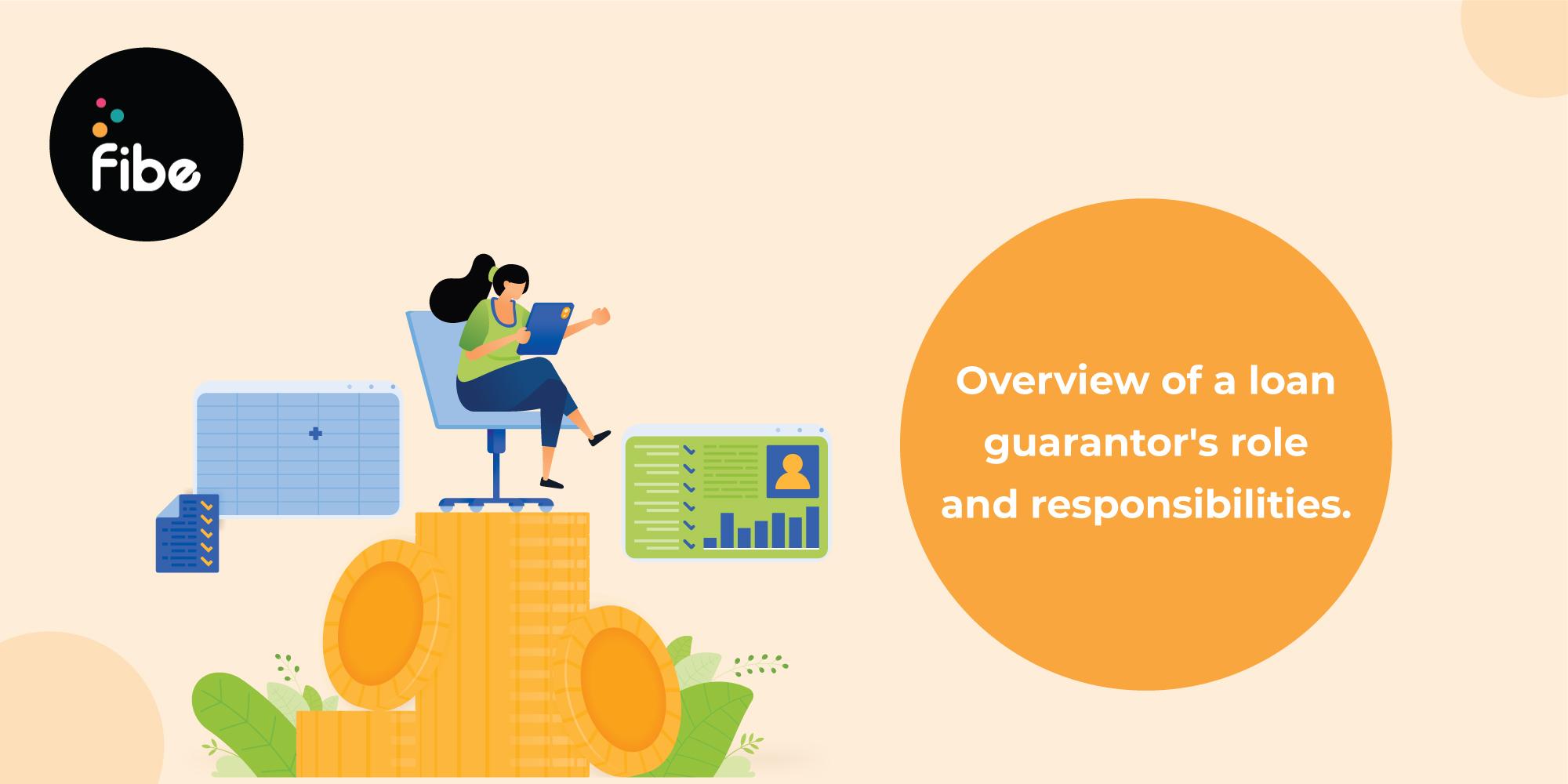- Home
- Blogs
- Personal Loan
- What Is Loan Guarantor
Loan Guarantor Explained – Responsibilities & Risks
Reviewed by: Fibe Research Team
- Updated on: 15 Sep 2025

When applying for a loan, one common question borrowers have is: ‘Can I still get approval if my credit score is low or my income is insufficient?’ This is where a loan guarantor plays an important role. A guarantor increases your chances of getting loan approval because lenders feel more secure about repayment.
If your credit history is weak or you’re just starting to build one, involving a guarantor reduces the risk for the lender. As a result, you can access funds more easily, even in the form of an instant loan with guarantor support.
Table of Contents
- Loan Guarantor Meaning
- Personal Loan Guarantor Requirements
- When is a Loan Guarantor Required?
- What is the Role of a Guarantor in Loan?
- Importance of a Loan Guarantor
- Pros and Cons of a Guarantor in Loan
- Types of Guarantors
- Guarantor vs Co-Signer
- Collateral and Guarantors
- Key Tips for a Loan Guarantor
Loan Guarantor Meaning
So, what is guarantor in loan? In simple words, a loan guarantor meaning refers to a person who agrees to take responsibility for repaying a borrower’s loan if the borrower fails to do so. This individual acts as a financial safety net for lenders.
Personal Loan Guarantor Requirements
A guarantor is generally required to meet specific eligibility conditions such as:
- A high credit score
- Stable source of income and employment
- Strong repayment history
- Low credit utilisation ratio
Usually, a guarantor must be 21 years or above and can be a family member, spouse, sibling, or even a close family friend. In any case, the guarantor must have a clean credit record and should be willing to accept this responsibility.
When is a Loan Guarantor Required?
Here are a few cases where lenders may ask for a personal loan guarantor:
- When the applicant has no credit history (first-time borrower)
- When the borrower has a low credit score
- When the applicant has recently started a new job
- When the borrower’s income is not sufficient for the required loan amount
In such cases, a bank loan guarantor helps bridge the gap and assures the lender of repayment.
What is the Role of a Guarantor in Loan?
Here are the main responsibilities:
- Signing a legally binding agreement with the lender ensuring repayment obligations.
- Taking over repayment in case the primary borrower defaults.
- Bearing responsibility for the loan principal, interest, and penalties.
Importance of a Loan Guarantor
The presence of a guarantor significantly influences loan approval and repayment security. Here’s why guarantors are important:
- They provide financial security for lenders.
- They improve the borrower’s eligibility for a higher loan amount.
- They help borrowers access an instant loan with guarantor even if their profile has shortcomings.
- They can help first-time borrowers build creditworthiness.
Pros and Cons of a Guarantor in Loan
| Pros | Cons |
|---|---|
| Helps the borrower get a loan even if they don’t meet eligibility. | Guarantor becomes responsible for repayment if the borrower defaults. |
| Improves chances of securing funds on better terms (lower interest, etc.) | Guarantor’s credit score may be negatively impacted if repayment is delayed. |
| Enables the borrower to access a higher loan amount. | Guarantor may face difficulty in availing another loan during the tenure. |
| Offers borrower a chance to improve credit score. | Once given, a guarantee cannot be withdrawn or cancelled. |
Types of Guarantors
There are generally two types of guarantors:
- Financial Guarantor – A person responsible for repaying the borrower’s loan if they default.
Example: A father acting as a guarantor for his son’s personal loan.
- Non-Financial Guarantor – A person who vouches for the borrower’s credibility, residence, or employment.
Example: An employer confirming the employee’s stability and background.
Guarantor vs Co-Signer
Many people confuse a guarantor with a co-signer, but they’re not the same:
- Guarantor: Becomes liable only if the borrower defaults.
- Co-signer: Shares equal responsibility from the beginning and is considered as a joint borrower.
Example: If you take a personal loan guarantor for approval, they step in only if you fail. But if you add a co-signer, the loan reflects on both credit reports from the start.
Collateral and Guarantors
Collateral is an asset pledged by the borrower to secure a loan. While not always linked to guarantors, lenders may ask for either collateral or a guarantor when risk is high. In unsecured loans (like most personal loans), having a guarantor works as a substitute for collateral.
Key Tips for a Loan Guarantor
Here are some essential tips that a loan guarantor must keep in mind:
- Read the loan agreement carefully, including all the clauses, tenure and potential liabilities.
- Monitor the loan repayment regularly to check if the primary borrower is making timely repayment.
- Take the help of a co-guarantor to reduce your risk and potential liability.
- Make sure that the primary borrower for whom you’re serving as a guarantor is trustworthy.
Consider these points before becoming a guarantor:
- The reason for which the primary borrower is requesting you to be a guarantor.
- The reason why they need the loan.
- Whether you can repay the loan if the primary borrower defaults.
- If the primary borrower is trustworthy and a responsible individual.
- If you’re comfortable with repaying the loan on the borrower’s behalf.
With this information, you can involve a loan guarantor in your application and get funding easily. Remember, choosing a suitable lender is important.
Fibe is one such lender offering Online Personal Loans of up to ₹5 lakhs at affordable rates. You can repay the loan conveniently over 36 months through EMIs. Download the Personal Loan App or log in to our website to apply.
FAQs on Loan Guarantor
What are the risks of being a loan guarantor?
Here are some risks:
- The guarantor is liable to repay the due amount if the primary borrower defaults.
- The guarantor’s credit score will have a negative impact if the primary borrower fails to repay the loan.
- Availing of another loan at the same time for a different purpose can be difficult.
- If an individual becomes a guarantor for a loan, they can’t cancel it.
Can a guarantor be removed from a loan?
No, once an individual becomes a guarantor, they can’t be removed.
What is the RBI rule on guarantors?
The RBI allows financial institutions to set their own guidelines in case any borrower requires a guarantor. The lender gauges the following parameters before approving any applicant as a guarantor:
- Income
- Creditworthiness
- Employment status
- Residential details
